Menstrual Cycle Health: How Lifestyle Changes Can Support It Naturally
Sep 09, 2025

Menstruation or periods, as we call it, is a normal part of every woman’s life for around 35-40 years. Most women bleed for 2 to 7 days every month as a part of their menstrual cycle. The blood flow, the number of days in a period, and the symptoms/effects of periods vary from person to person. However, studies suggest that more than half of those who menstruate feel some pain for up to 3 days a month. So, how to reduce this discomfort? How to make periods less painful naturally? You can do so by making some changes in your lifestyle.
This blog guides you for the best routine during menstruation that can make your periods easier to deal with. Read on to learn about the menstrual cycle in women and lifestyle changes tips to support menstrual cycle health.
The Menstrual Cycle - An Overview
The menstrual cycle is the time duration from the first day of the menstrual period until the first day of the next menstrual period.
The purpose of this cycle is to prepare a woman’s body for possible pregnancy each month. During this time, a mature egg is produced by the ovaries.
The lining of the uterus thickens to support a possible pregnancy. When pregnancy does not happen, the unfertilised egg and lining of the uterus are shed from the body through the vagina, and bleeding happens. This bleeding is called menstruation.
The menstrual cycle comprises follicular, ovulation and luteal phases, and is usually spread across a period of 28 days. The hormonal changes involved in each phase bring a little or more discomfort and pain for women based on their body condition.
Lifestyle Changes to help Support Menstrual Cycle Health
While menstrual pain and irritation may seem a temporary phenomenon, doing your bit to reduce this discomfort becomes imperative when it repeats every month. The following menstrual health tips for women will help you support your body throughout the menstrual cycle:
Food choices
Modifying your diet is one of the most important lifestyle changes for hormonal balance, the factor that impacts your menstrual cycle the most. Change your food choices in a way that your body gets the right mix of nutrients and your hormones are not stressed.
- Avoid foods with high salt content to reduce fluid retention, abdominal bloating, breast swelling and pain.
- Make sure your food contains enough carbs. Lack of adequate carbs in the food can result in irregular or missed cycles.
- Consume foods that provide you with adequate fats, as this may support hormone levels and ovulation.
- A diet for the menstrual cycle should include foods that contain omega-3 fatty acids, and vitamins D & E. These nutrients may help reduce the severity and duration of period pain.
- Foods to include in the diet: Include wholegrains (rice & oats), fish (salmon & sardines), nuts (walnuts), seeds (flax & chia), fruits (papaya & pineapple), etc., in your diet to enrich your body with nutrients that can be beneficial in managing period discomfort.
- Foods to avoid during periods: Stay away from caffeine and highly processed foods during your periods, as this may worsen period cramps and pain. You should also refrain from heavy alcohol consumption as this can reduce magnesium levels in the blood, a nutrient that supports blood flow and helps relax muscles.
Dietary Supplements
The addition of the following supplements to your diet can also help support your menstrual cycle health:
- Magnesium: It may relieve muscle cramps, support good sleep, and help handle mood changes, like irritability and anxiety.
- Calcium: It can help reduce menstrual cramps, fluid retention, and food cravings.
- Vitamins B1, B6, D & E: These vitamins may help reduce pain and menstrual blood flow, regulate the menstrual cycle and improve the mood.
- Zinc: It can help relieve menstrual pain, cramping and depression.
- Fish Oils: Fish oils can also help relieve menstrual pain, depression and cramps.
There are plenty of supplements available to support your nutritional needs for a healthy menstrual cycle. However, it is advisable to consult your healthcare professional before using any supplement for this purpose.
Exercise
Though a direct connection between regular exercise and period cramps reduction has not been established, research suggests that exercise can release ‘happy hormones’. This can help reduce mood disturbances. Besides, exercise can also be beneficial for your overall fitness. However, matching the intensity of your workout with your energy levels (cycle syncing) can be more beneficial for your body.
Do low-intensity exercises like walking or stretching during menstruation when your body needs rest. As the energy levels increase during the follicular phase, go for exercises like running and swimming. The ovulation phase, when your energy levels are at peak, is fit for high-intensity workouts like kickboxing and spinning. Once the luteal phase approaches, opt for medium-intensity cardio and strength training exercises to help your body get ready for the upcoming periods.
Stress Management
Stress and menstrual irregularities are associated in more ways than you can imagine. High levels of stress can disrupt the menstrual cycle, resulting in changes in duration and flow of periods. Consider practising yoga or meditation to reduce stress. You can also consider consulting a professional counsellor to alleviate stress.
Sleep
Regular sleep and hormonal health go hand in hand. The sleep hormone, melatonin, helps regulate periods. Prolonged troubled sleeping can cause irregular or missing periods. Respect your body clock and follow a regular bedtime routine. Take a shower with warm water before bed to relax your body. Also, avoid caffeine, heavy meals or spicy food right before bed.
Good sleep is also an important aspect of maintaining general health. Read why a healthy life starts with good sleep, to learn more. If you continue facing trouble with your sleep, take the help of your healthcare professional.
Healthy Habits
Developing the following healthy habits helps regulate your menstrual cycle health:
- Maintain a healthy weight, as weight gain or loss can disturb your period routine.
- Refrain from smoking. Toxins in cigarettes can disrupt hormonal balance and disturb the menstrual cycle.
- Use menstrual products, like sanitary pads, tampons, etc. and change them every few hours to avoid irritation and infections.
- Wear comfortable, lightweight and breathable clothing during periods to avoid the trapping of moisture and heat, and the growth of germs.
Frequently Asked Questions
It is natural to be curious about menstrual health when you have to undergo bleeding for days, every month. In addition to the above information, the following answers to some common questions will help you learn more about menstrual cycle health:
Q. What is PMS?
A. PMS or Premenstrual Syndrome is a collection of symptoms women experience before their menstrual period. It includes physical symptoms, such as bloating, sore breasts, fatigue, acne, headaches, diarrhoea or constipation; and emotional symptoms, like mood swings, irritability, trouble focusing, trouble sleeping, food cravings, etc.
Q. What is a healthy menstrual cycle?
A. healthy menstrual cycle is when menstruation or the period occurs regularly, every 21 to 35 days. The bleeding during menstruation lasts between 2 and 7 days.
Q. Which fruits are good during periods?
A. Bananas, pineapples, papayas, apples, and citrus fruits like oranges and lemons help provide nutrients and maintain hydration to relieve bloating and cramps, and support energy levels.
In The End
A woman experiences a series of hormonal changes during her menstrual cycle, which can lead to physical discomfort like pain and cramps, and emotional disturbances, like irritation and mood swings. The lifestyle changes mentioned in this write-up can help you support your menstrual cycle health and stay emotionally and physically balanced during your periods.






